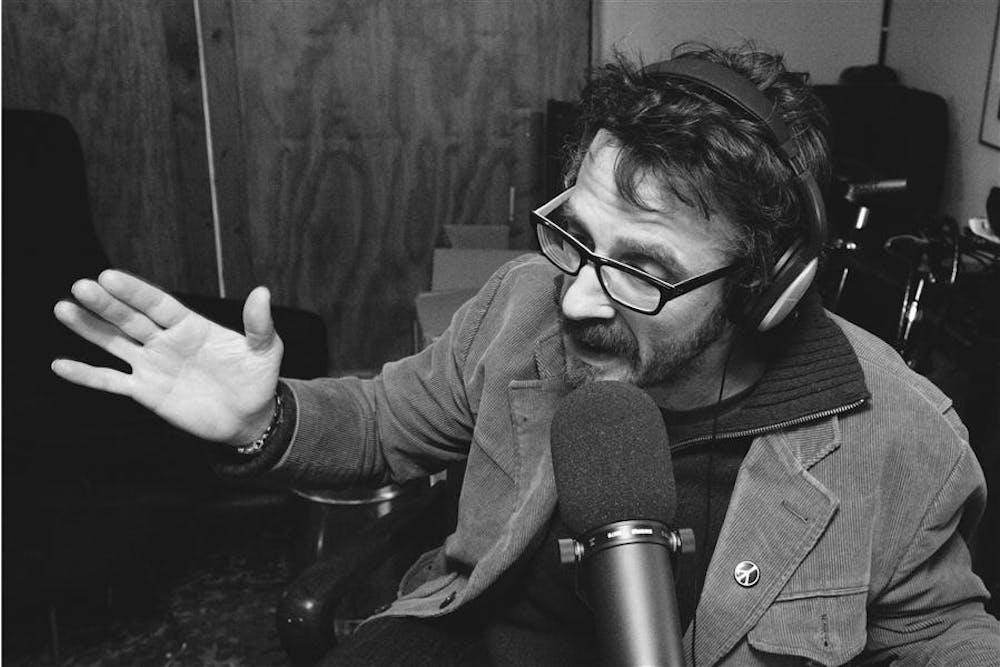A decade after his debut LP and two and a half years after the launch of his “WTF” podcast, Marc Maron finds himself in some rarified company as one of the most important people in comedy.
In an era marked by the radicalization of the distribution model, the 48-year-old comic has emerged as a master, pairing pathos with hilarity on “WTF” and selling out comedy clubs across the country with his neurotic stand-up act.
Live Buzz interviewed Maron by phone while the comedian drove around before a string of dates in Minnesota and a live taping of “WTF” in Austin, Texas. Maron will perform at 8 and 10:30 p.m. Friday and Saturday at the Comedy Attic.
Live Buzz You were critical of a recent article on the A.V. Club that suggested comedy podcasts have reached a saturation point and are now negatively impacting stand-up. Can you elaborate on that?
Marc Maron We live in a culture now that is highly accessible to technology, where people can record us when we don’t want to be recorded.
Especially if you have a podcast, there’s a lot of us out there. I thought he paid short shrift to the idea that having a conversation and the way that we craft a joke are very different.
And the fact that he happened to show up at two unpublicized shows where I was working out the material and judging me, he’s talking about a very small world.
Even the world of podcasting, in terms of audience, is a small world in the media landscape, and the fact he was making these broad generalizations about overexposure and judging the new medium that we’re all trying to develop, I thought was diminishing and shortsighted.
LB Has podcasting changed the way you think about stand-up material?
MM I speak my mind on my podcast the first 10 or 15 minutes, just talk off the top of my head with no censorship in terms of self-censoring or in terms of whether people are laughing. I’m just speaking freely, so if I find something interesting that I can build into a nice stage bit, then I’m excited. I used to have to work that out on stage, so now I’ve got a whole ‘nother outlet that’s free-form thought for me, and sometimes I hit upon ideas that I’d like to use.
LB Do you feel you have to manage how you present yourself to the world via Twitter and the podcast since it’s such a freer format than stand-up?
MM Yes. I think you’re only one tweet away from getting the world angry at you. So yeah, there’s a little bit of pressure.
You have the knowledge of how many people are seeing what you’re tweeting or saying because it’s just you at a computer or microphone. I don’t always think about how many people are reading or seeing this, and maybe I should.
LB Your stand-up has always seemed to carry a certain amount of self-consciousness. Has your recent success changed that?
MM I think self-consciousness, using that term, that implies to me a certain fear, a certain level of being stifled, but if you’re saying I’m self-aware, yeah, that’s who I am. That’s sort of the way my brain works. Am I less neurotic because of my fame? I don’t know if it’s even fame.
I’m just doing what I’m doing, other than being a comedian, and because I talk to comedians, I’ve become a resource and an anomaly. But I don’t feel better about myself because I’ve had some success after working very hard for 25 years. I just didn’t think it would take this form. I’m still freaking crazy, but I’m not as freaked out about finding my place in the world.
Comedian talks podcasts, self-awareness

Get stories like this in your inbox
Subscribe





